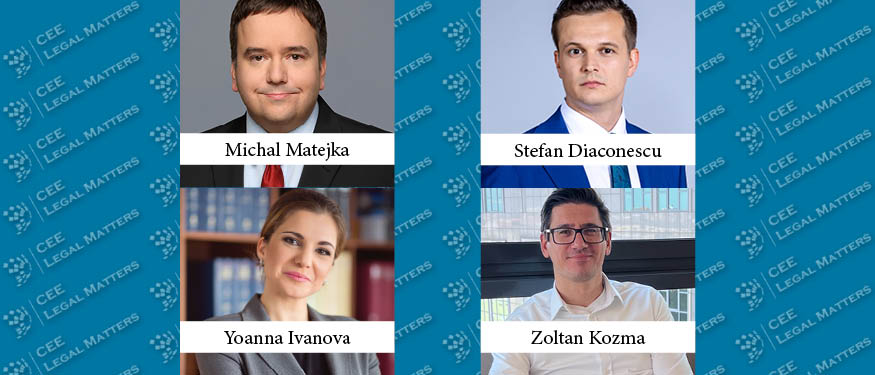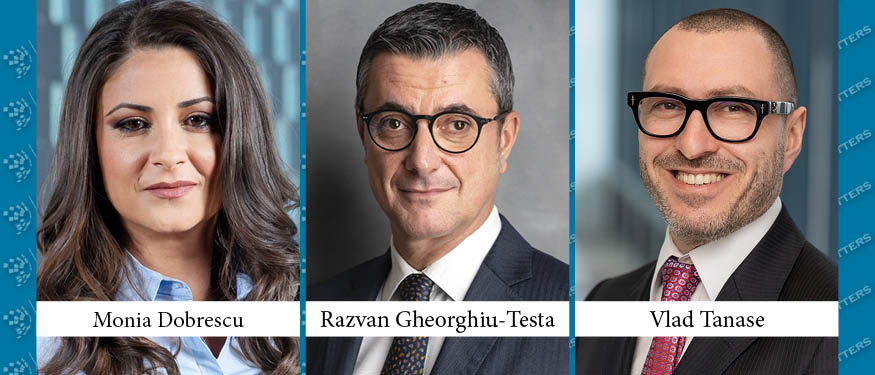In The Corner Office, we ask Managing Partners at law firms across Central and Eastern Europe about their backgrounds, strategies, and responsibilities. With industry-specific software emerging left and right, the legal industry was not left behind. To explore some of the trends in this regard, we asked: What are some of the specific legal tech platforms you use?
Vaclav Bily, PRK Partners: In our office, we use mainly two legal tech solutions – SingleCase and Legito.
SingleCase is used as a data management system and for the general management of clients and legal cases. Legito is a smart contract solution in which we internally keep templates of often-used legal documents to allow us to both centralize our know-how and to be more efficient in our work due to automation within the platform (e.g., its connection to the Czech Commercial Register). We of course also use legal information systems such as ASPI or Beck for legal research in laws, court decisions, and legal literature.
In addition, we currently use many other digital tools albeit not being a specific legal tech solution. This namely includes access to LLMs currently through ChatGPT, AI-assisted translations through Deepl (which our attorneys can quickly and easily access through an internally developed client connected to Deepl API), or Signi, a Czech platform for electronic signatures.
Finally, we are also currently testing several legal tech solutions such as SingleDraft (an AI-powered MS Word plugin) or Advomate (an AI-assisted legal research tool). We are also in discussion with Semantee.ai on the development of an AI-assisted document search namely to be used in due diligence processes.
Josef Donat, Rowan Legal: At Rowan Legal, we are continuously innovating our services, including the involvement of legal tech external tools – for example for document automation or whistleblowing. We are also innovating internally to continue to improve the cooperation and exchange of know-how of our internal teams.
In recent months, in cooperation with Legal Systems, we launched and further developed a document automation system. Our clients thus have an innovative tool at their disposal, thanks to which they significantly save time when preparing and revising contractual documentation. We also introduced and further developed a whistleblowing solution called Smartwhistle, in which we combined the legal service with the WhistleLink technical solution.
We are also closely monitoring developments in the field of artificial intelligence. In the past year, we have started to use several tools for so-called smart research or for revising anonymized documentation based on defined parameters. We are also working on improving the internal chatbot, which helps, among other things, with the onboarding of new colleagues.
Tarik Guleryuz, Guleryuz Partners: At Guleryuz Partners, we are particularly interested in developing our business and improving efficiency through the use of technology, and we use several platforms to this end.
First of all is our internally developed app for time management and billing, which we named Ticker. Ticker allows us to manage the financial and time-management aspects of client management, such as making time entries, tracking costs, or automatically generating invoices in line with our engagement with the client.
Secondly, we use iManage for our document management needs, which is now almost the industry standard for document management and enables us to efficiently categorize and keep our documents organized.
Apart from the management-purposed use of technology, we are keen to use and develop technologies contributing to time and cost efficiency in any work-stream of a law firm. For these purposes, we have founded Delege Lata, an artificial intelligence research company specializing in AI research and development in the legal field. While the product – Delege Lata Associate – is still in development, it will simplify workflows, especially for our litigation team, as it is being purpose-built as an AI to handle drafting in litigation and arbitration. We have been testing the product in-house at Guleryuz and will unveil it to the general legal world in the coming months.
Pal Jalsovszky, Jalsovszky: The principal legal tech software that we use is Legito, which is a tool designed for contract automation. For three years now we have been working on uploading our main contractual provisions to Legito. Further, our firm uses Henchman, a very intelligent tool for searching clauses in our own database. Other than this, we have been using Luminance for more than five years to enhance the efficiency of our due diligence reviews. And lately, we started to use KLERQ, a Dutch-based software, helping us to put together our Legal500, Chambers and Partners, etc., submissions.
Other than these tools specifically designed for lawyers we are using various other software in our daily routine. Most notably, we benefit from Active Campaign, a CRM solution. In addition, we use Qlikview for our internal controlling and management accounting purposes.
Kostadin Sirleshtov, CMS: At CMS we use our Lupl platform – a radically simple software platform for lawyers to plan, organize, and deliver legal work. Usually, legal professionals do not have a central system for managing work, so they spend their days switching between tools and systems.
With Lupl, we have greater visibility – a bird’s eye view of everything relating to our matters with flexible views. We always know where tasks and deadlines stand across all matters and review all activities in real-time. It allows us to streamline tasks – to assign tasks, set priorities, and ensure balanced work distribution among our team, effortlessly managing our team’s workload.
Lupl helps us create customized workflows – we define the steps, tasks, and deadlines for each matter, assign roles and responsibilities to team members, and track the progress and status of each workflow. It provides integrated knowledge – easily capturing firm expertise and experience, thus enhancing efficiency and reducing the time spent searching for data.
Perry Zizzi, Dentons: Dentons is exploring numerous technologies to make our work more efficient.
I’m part of a pilot of 100 lawyers using Harvey AI for document analysis and review, information retrieval, and legal drafting. This gives us useful first drafts, but outputs still need to be reviewed by experienced lawyers. We are also piloting Microsoft Copilot, which is used for summarizing documents/data, creating first-draft correspondence, and doing research.
We are also using eDiscovery tools such as Luminance, Relativity, Nuix, and Brainspace to read and search large sets of documents to identify crucial information in short timelines. We have recently started using Azure AI Studio and its latest language models to develop chatbots that enable lawyers to analyze the latest developments, trends, and opportunities in their sectors or practice areas.
Our award-winning Purple Sea is an interactive data-driven solution, built internally on PowerBI, which is used by lawyers and business development professionals to identify white space and opportunities to expand client relationships. We also have a number of automated financial reporting tools built on Power BI.
This article was originally published in Issue 11.7 of the CEE Legal Matters Magazine. If you would like to receive a hard copy of the magazine, you can subscribe here.














